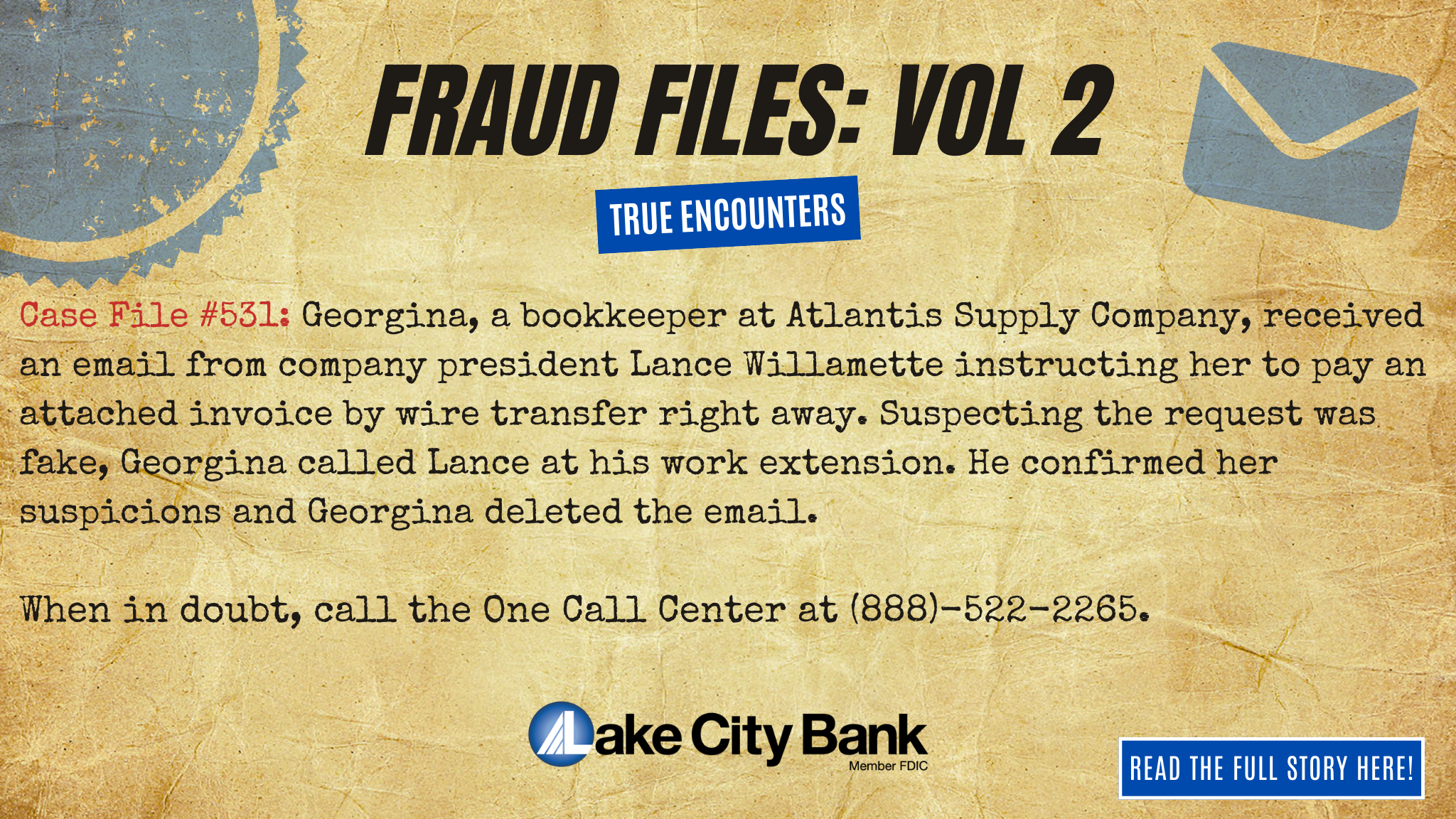
Wire transfer scam


Georgina loved her job at Atlantis Supply Company. She was a bookkeeper known for her hard work and pleasant interactions with coworkers. Part of her job included paying invoices that the company received; payments were often sent by wire transfer.
One afternoon when Georgina returned from lunch, she opened an email from company president Lance Willamette. The email, marked urgent, asked her to pay an attached invoice via wire. Lance added that payment was almost past due since he forgot to submit the invoice to Georgina in time. Georgina called Lance at his work extension to verify the request, following her normal procedure for verifying and sending wires. Lance replied that he had not sent the email and invoice. Relieved that she had avoided wiring company funds to a fraudster, Georgina deleted the email.
This story has a happy ending, but many Business Email Compromise (BEC) incidents end with the wired money gone for good. When wiring funds, follow each of your due diligence steps before clicking send. Even if the email address looks legitimate, the account could be hacked. We recommend calling a known number (not a number listed in the email) to confirm instructions before you follow through with the transaction.
When in doubt, call the One Call Center at (888) 522-2265.
If you have any questions about cybersecurity, you can ask them using the form on our Contact Us webpage by visiting https://www.lakecitybank.com/contact-us/



